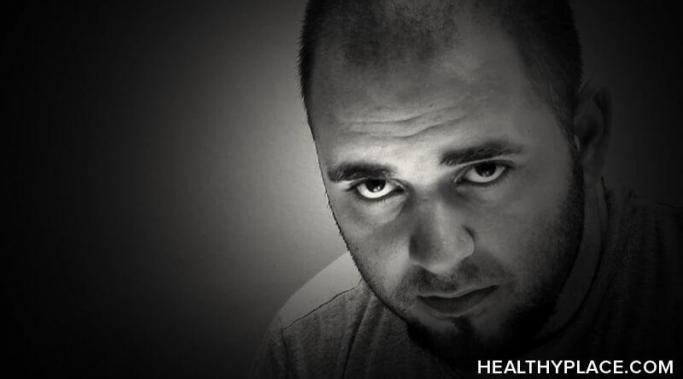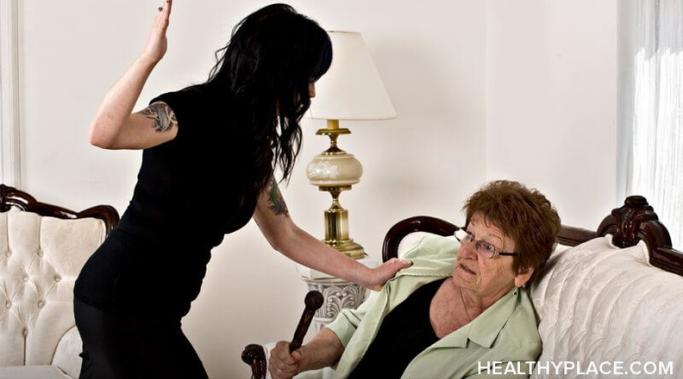I have schizoaffective disorder plus general anxiety disorder. General anxiety may sound like a mild condition but, for me, it can be torture. When I’m feeling extremely anxious, I often hear voices. And when facing my anxieties triggers schizoaffective voices, it becomes very hard to cope.
Schizophrenia Videos
My name is Alexander Crawford, and I’m the new author of Creative Schizophrenia. I was diagnosed with schizoaffective disorder – bipolar type around the time I was 22 years old. Around that time, I was at the University of Chicago and although I was doing fairly well, I had been experimenting with drugs, including what are called “research chemicals” (which are basically just synthetic drugs). The psychosis I suffered around this time was truly devastating, and because of my initial non-compliance with medication, I suffered years of pain, as I exhibited odd, aloof, and completely unrestrained behavior.
A couple of weeks ago, I described my experiences with weight gain caused by atypical antipsychotics used to treat schizophrenia and schizoaffective disorder. Something has changed since then, and probably with some motivation from sharing that article with you. Now I’m trying to lose weight while on schizophrenia medication. I don’t want to go off the antipsychotic I’m on or find a new one--every time I do that I have a bad experience. But here’s how I’m going about the challenge of staying on schizophrenia medication and losing weight.
Because I'm 38, I'm starting to wonder if my schizoaffective disorder has held me back. Of course, you don’t have to have schizophrenia or schizoaffective disorder to get anxious around midlife. When my mom, who doesn’t have schizophrenia or schizoaffective disorder, turned 40, my little brother cheerfully quipped, “Hey, Mom. Now you’re half dead.” She laughed, but I imagine the words must have stung a little bit. However, for someone with a mental illness, evaluating your life at midlife means wondering how much—and if at all—your schizophrenia or schizoaffective disorder has held you back.
You don’t need schizoaffective disorder to wish you had the ability to go back in time to see if things would have worked out differently if you had known when you were younger what you know now. I’ll be honest with you, not a day goes by that I don’t wonder--if I had made different choices in my teens, would I still have gotten schizoaffective disorder (Causes of Schizoaffective Disorder)?
As someone with bipolar disorder—and, really, as someone with a mental illness in general—Carrie Fisher meant a lot to me and other people with schizophrenia or schizoaffective disorder (Carrie Fisher and Manic Depression). I think I speak for many of us in the schizophrenic and schizoaffective community when I say she will be missed—an understatement to say the least. Here is what Carrie Fisher meant to me as a person with schizoaffective disorder.
So many people with schizophrenia or schizoaffective disorder smoke cigarettes, it seems hard to imagine that they could not only quit smoking but stay smoke-free. But I did it – after several tries – even though I felt hopelessly addicted to cigarettes. So I firmly believe that if I did it, anyone can do it. Here’s how I, one of the many people with schizophrenia or schizoaffective disorder who smoked, quit and stay smoke-free.
Going on vacation with schizophrenia or schizoaffective disorder is mandatory for those of us with the disorder. We can't just leave it at home. We bring it along. But that doesn’t mean you can’t unwind, relax, and have fun while on vacation with a mental illness. Sure, there will be tough moments, as there always are with any illness. When you vacation with a chronic illness like schizophrenia or schizoaffective disorder, the key is to focus on the fun times and not expect everything to be perfect.
People so often assume that those of us with mental illnesses like schizoaffective disorder (SZD) or schizophrenia are violent. The fact is that people with a mental illness are more likely to be the victim of a violent crime than the perpetrator (Appleby, et al., 2001). In the wake of the horrific Orlando shooting, once again mental illness is blamed as a cause for the attack. And, once again, stigma regarding violence among those with mental illnesses, like schizophrenia and schizoaffective disorder, is reinforced.
Having schizophrenia or schizoaffective disorder in college is really hard. Getting a master’s degree is really hard, too. Dealing double duty can be a real challenge. I got my master’s degree in photography while coming to terms with my diagnosis of schizoaffective disorder. Here’s what it’s like to be in college while battling schizophrenia or schizoaffective disorder.









